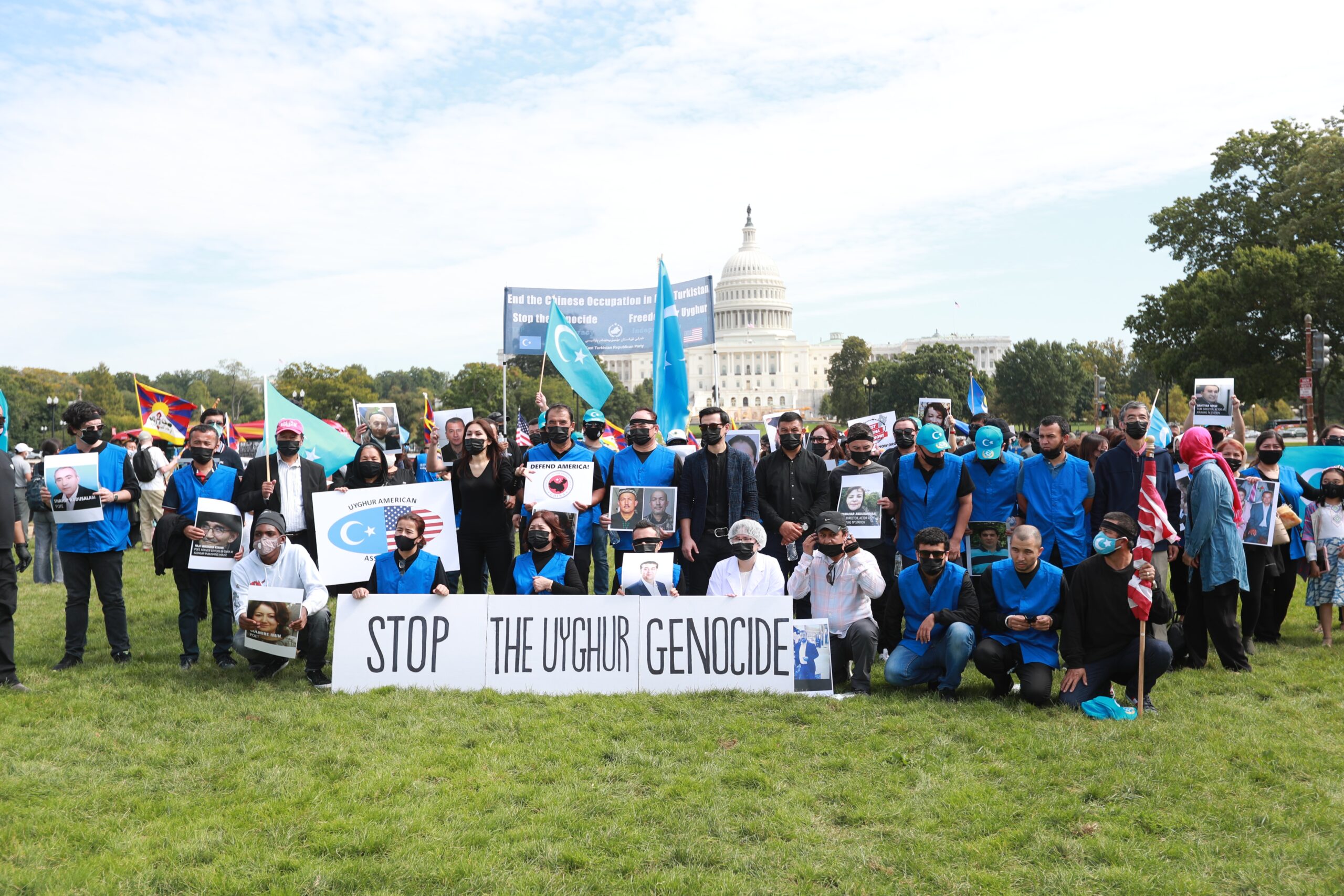Whether organizations like the UN will meaningfully press China on the issue is not clear.
Humans have a real appetite for mass murder. The twentieth century produced at least eight genocides, and the last 21 years have featured three more. Genocides are now a casual part of politics, unfolding with little consequence or objection. Most troubling is confronting China’s systematic campaign against its Muslim Uyghur population, which is coming to a head after decades of discriminatory and abusive policies. The logic of the American-led War on Terror helped justify a tsunami of abusive policies against Muslims worldwide. The genocide in Xinjiang is only its logical conclusion.
The U.S., U.K. and some European states now confirm that China is committing genocide in Xinjiang. But beyond that are stillness and silence. The silence is loudest from leaders and countries who once professed solidarity for oppressed Muslims everywhere. This is partly a function of the authoritarianism in influential Muslim countries like Saudi Arabia, the United Arab Emirates, and Turkey—calling to protect the rights of Muslims elsewhere might give their own populations ideas. And anyway, Saudi Arabia is occupied with butchering journalists and Yemenis, the UAE is busy making peace with Israel (don’t mind the apartheid), and Turkey would rather deport Uyghurs back to China.
The ugly truth is that for all who wonder what they would have done as genocides unfolded in their time, the answer is largely nothing. The videos of Uyghur men shackled and blindfolded and put on trains to unknown destinations, the immense surveillance and detention infrastructure China uses to enforce obedience to Beijing, Uyghur women relating their rapes and abuse in internment camps, the fates of Uyghurs who have fled only for authorities to imprison their family members, the sharp decrease in Uyghur population numbers and birth rates—they are not a secret. Beijing has countered questions and criticisms from other states with unsubtle propaganda campaigns, outright hostility and assertions that it is fighting Islamic extremism.
No one knows how to confront a rising, antagonistic China. Global trade, commerce and financial markets all depend on a stable relationship with Beijing. Multilateral institutions like the United Nations no longer provide a meaningful forum to address vast crises and deal with atrocities like genocide as the UN Charter dictates. In any event, China is committed to a new multilateralism in the Eastern hemisphere where it can shape and influence the work of newer groupings such as the Shanghai Cooperation Organization and ASEAN. Moreover, through its flagship “Belt and Road Initiative” the Chinese government hopes to forge strong economic and political ties throughout Asia with billions in infrastructure investment. With these layered ties to its neighbors China is looking for more than markets: it needs as many allies as possible in a world where China’s authoritarianism is deepening.
Irrespective of how powerful China is or isn’t at this moment, it is powerful enough that it can subjugate a population of 14 million people, send one million of them to camps, and eradicate their religion and cultural identity without any repercussion from global actors. What’s clearer is that no one is prepared to find a way to end it. Beijing remains impervious, and hostile, to criticism about how its laws and policies violate political freedoms and basic rights, and especially so on Xinjiang. The most successful public campaigns that have managed to highlight an aspect of the Xinjiang crisis is the use of cotton harvested through forced Uyghur labor. As it turns out, major brands including Zara, Nike and Apple have all come under scrutiny for relying on Chinese supply chains that may well be relying on this labor too.
Not that many people are criticizing. Three years ago, the world looked on as Myanmar’s army displaced the country’s entire Muslim Rohingya population into neighboring Bangladesh, committing war crimes so monstrous that the UN deemed the campaign genocide. Despite an international outcry, the operation to push out the Rohingya from western Burma succeeded. Most Rohingya refugees remain in Bangladesh, living in squalid camps that lack basic amenities and infrastructure, without access to livelihoods or any prospect of returning safely to Myanmar.
Noting Henry Kissinger’s facetious and lazy advice not to tangle with China on human rights issues, the enormous question remains: how is the ongoing genocide in Xinjiang going to end? Who will end it? Does it end in mass graves and gas chambers, as with genocides before? Or is there a way, slow but painful, to push China toward a different relationship with is minority communities? Who is willing to make this a priority in state-to-state relations with China?
Perhaps it would be easier if the Muslims of Xinjiang had not been Muslim. Muslims have been the targets of so many wars in the last century that the notion of Muslims dying in far-off places—Chechnya, Palestine, Iraq, Syria, Afghanistan just in the latter half of the 20th century—is blasé and predictable. Even a state that traffics as aggressively in its Muslim identity as Pakistan has nothing to say about Xinjiang, despite the fact that the beleaguered province sits on the other side of Pakistan’s eastern border.
The US and European states have seriously damaged their own standing when criticizing the conduct of other states. The debacles in Afghanistan and Iraq, apart from destroying those countries, set a comfortable precedent for states with total contempt for the concept of human rights. One lesson of those wars was that no one would be held accountable for overthrowing a government, war crimes or any serious abuses, especially if they were from the occupying army. Such reckless disregard for longstanding international norms about how states conduct themselves in war meant that Russia and Iran could act as violently as they chose when intervening in Syria’s war to sustain Bashar al-Assad. The global institutions meant to protect civilians, and investigate and prosecute war crimes, have largely proven themselves useless.
The Chinese government also looks at events like the Iraq and Afghanistan wars and concluded its best defense against criticism for its gross human rights violations is to point that China’s opponents have no credibility on these points. This comes alongside a greater confidence that China can engage with the world on its own terms, and one of those terms is that outsiders have no say in China’s domestic affairs. The response to this cannot be silence.
The Chinese government works very hard to shut down any political discussion about Xinjiang, most recently demanding other UN member states not attend a discussion about the province, organized by the U.S., U.K., and Germany. Whether organizations like the UN will meaningfully press China on the issue is not clear. In the meantime, what of the world’s billion or so Muslims? Beyond a few Uyghur diaspora groups, Muslim advocacy organizations and governments are quiet. Confronting China on Xinjiang will have real material costs for states who want to sway Beijing’s policy, but ignoring an ongoing genocide means the destruction of an entire people is acceptable state conduct. That seems a much higher price to pay.



